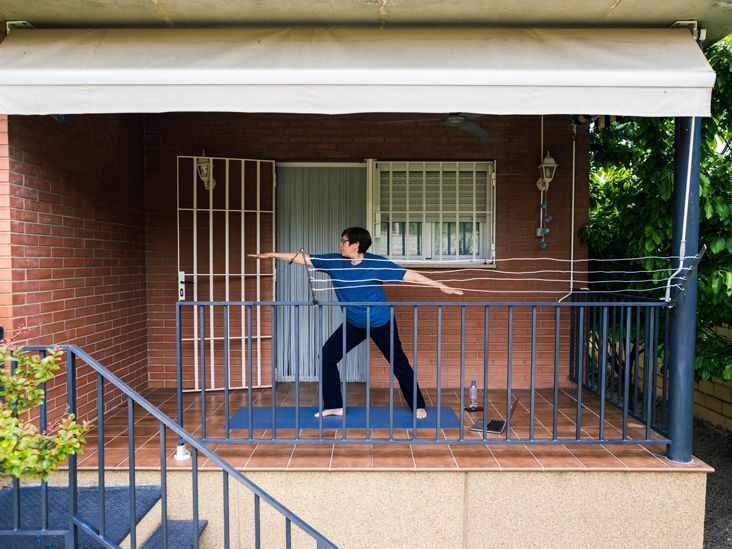Can Cats Be Companions for People with Dementia?
Dementia is a devastating condition that affects memory, thinking, and behavior. As dementia progresses, individuals often require increasing levels of care and companionship. For elderly adults living alone with dementia, the social isolation and lack of stimulation can accelerate cognitive decline. In these cases, having a pet cat can provide much-needed companionship and mental stimulation. Here's an overview of how cats can benefit people with dementia.
Providing Companionship
Loneliness and isolation are common problems for seniors with dementia. As cognitive abilities deteriorate, it often becomes difficult to maintain social connections and engage in hobbies. Cats make excellent companions for individuals with dementia for several reasons:
- Cats provide unconditional love and affection.
- They are low maintenance pets compared to dogs.
- They enjoy being petted and sitting on laps.
- Watching cat play and antics is entertaining.
- The soothing purr of a cat can have a calming effect.
For those living alone with dementia, having a devoted pet cat companion can help reduce feelings of loneliness and improve mood. The comfort and security provided by a pet's presence and touch can be very therapeutic.
Stimulating the Mind
Mental stimulation is very important for dementia patients to help slow cognitive decline. Interacting with pets has been shown to improve mental acuity in seniors. Here are some of the ways cats can mentally stimulate someone with dementia:
- Playing with cats exercises hand-eye coordination and reflexes.
- Watching a cat's antics and movements is visually engaging.
- Petting a cat is a tactile activity that stimulates touch receptors.
- Caring for a cat's basic needs boosts sense of purpose and focus.
- Speaking to and interacting with a cat exercises language and speech.
The multi-sensory act of playing with and tending to a cat provides much needed mental engagement and activity for dementia patients. This can help slow the progression of memory loss and cognitive dysfunction.
Promoting Physical Activity
Lack of physical activity is a common problem for individuals with dementia. Mobility issues coupled with lack of motivation leads many seniors to live sedentary lifestyles. This can exacerbate mental decline and loss of function. Cats can play a role in encouraging more daily physical activity through:
- Cleaning litter boxes requires bending, standing, and walking.
- Refilling food and water involves functional mobility.
- Playing with string toys and laser pointers gets people reaching and moving.
- Standing and walking to let cats in and out.
- Light exercise from stroking, brushing and holding cats.
The activities involved in caring for and interacting with cats promotes physical movement and engagement. This modest increase in activity benefits physical and cognitive health.
Providing Comfort & Security
Dementia can cause feelings of anxiety and disorientation as familiar environments seem unfamiliar. The presence of a trusted pet cat can provide a source of great comfort and security during times of distress. The reassurance provided by a devoted companion cat can help soothe agitated behaviors in dementia patients.
Responsibilities & Routine
Having to care for a pet cat provides valuable structure and routine for individuals with dementia. Feeding, cleaning litter boxes, grooming and playing with a cat ensures the person continues going through daily motions and fulfilling responsibilities. Maintaining this daily routine helps provide continuity and purpose that can deteriorate due to dementia.
Potential Challenges of Dementia Cats
While cats can certainly be therapeutic companions for people with dementia, there are some potential challenges to consider as well:
- Forgetting to feed or care for the cat.
- Difficulty cleaning up after the cat.
- Safety issues such as tripping over the cat.
- Allergies exacerbating respiratory issues.
- Disorientation leading to irritability with cat.
- Inability to properly look after cat as dementia worsens.
Caregivers can implement strategies to help manage these risks and ensure the cat companion remains a positive presence. This includes monitoring the person and cat, keeping food and litter simple, and removing trip hazards. Rehoming the cat may ultimately become necessary if caring for it becomes unsafe or inhumane.
Ideal Cat Breeds for Dementia Companions
When selecting a cat to be a companion for someone with dementia, choosing the right breed is important. Some breeds tend to have qualities that make them well-suited for this role. Here are some top breeds to consider:
Ragdoll
Known for their docile, affectionate personalities, Ragdolls often thrive on physical touch and lap sitting. Their laidback demeanor and soft fur makes them ideal for petting and cuddling.
Persian
Persians tend to be low energy cats that enjoy being combed and pampered. Their plush coats gives tactile stimulation when brushed. They also generate conversation with their expressive facial features.
Siamese
Siamese cats bond very closely with their owners and crave companionship. Their vocal nature provides lots of auditory stimulation. Their playful and mischievous personality keeps things lively.
Maine Coon
This breed tends to be social, loyal, and intelligent. They often retrieve toys which encourages movement and exercise. Their large size makes them comforting and grounding to hold.
Calico
Calicos are very people-oriented cats that thrive on human interaction. They're often feisty and funny which provides entertainment. Their striking coat colors and patterns are visually stimulating.
Important Traits for Dementia Cats
Beyond specific breeds, there are some key personality traits and characteristics to look for when selecting a dementia companion cat:
- Affectionate and people-oriented
- Enjoys petting and physical touch
- Relatively low energy
- Laid back and gentle temperament
- Playful but not overly rambunctious
- Tolerant and patient
- Good around seniors and those with limited mobility
- Comfortable in small spaces
- Shorter coat that requires minimal grooming
By thoughtfully selecting a cat that is well-suited for interaction with seniors, you can help ensure a rewarding companionship for both person and pet.
Tips for Integrating a Dementia Companion Cat
Successfully integrating a companion cat into the home of someone with dementia requires patience and planning. Here are some tips that can help make the transition smooth and rewarding for all:
Gradually Introduce the Cat
Don't overwhelm the person by immediately moving the cat in. Start with short visits, then have the cat stay overnight. As the cat becomes more familiar, gradually increase the duration of visits before making the move permanent.
Set Up a Safe, Cat-Friendly Space
Designate a room or area of the home as the cat's space. This should include food, water, litter box, scratching post, bed, and toys. Keep this space confined at first so the cat feels secure.
Encourage Interaction with the Cat
Gently guide the person into petting, feeding, or playing with the cat during visits. Demonstrate how to appropriately interact. Provide positive reinforcement.
Monitor Interactions Initially
For safety, supervise all interactions between the cat and person at first. Redirect any aggression or agitation. Make sure basic needs are being met.
Keep Litter Boxes Accessible
FAQs
How can cats help people with dementia?
Cats can provide companionship, comfort, mental stimulation, and physical activity for seniors with dementia. Interacting with a cat engages the senses and provides routine.
What cat breeds make good dementia pets?
Some cat breeds well-suited for dementia companions include Ragdolls, Persians, Siamese, Maine Coons, and Calicos. Key traits are affection, patience, and enjoyment of human interaction.
What are some challenges of dementia cats?
Potential challenges include forgetting to care for the cat, inability to keep up with litter duties, safety issues like tripping, and agitation from disorientation with the pet.
How should you introduce a cat to someone with dementia?
Gradually introduce the cat with short supervised visits at first. Designate a safe cat space in the home. Gently encourage and guide interaction between the person and cat.
Can a cat companionship program help dementia patients?
Yes, organized programs that facilitate cat visits, adoptions, and fostering can provide companionship benefits. This helps ensure the cats are well-suited and cared for.
Disclaimer: This article is for informational purposes only and does not constitute medical advice. Always consult with a healthcare professional before starting any new treatment regimen.
Related Coverage
Find out if Medicare electric bikes are covered, what alternatives exist, and how seniors can still get the mobility they need....
Medicare for caregivers can help with skilled care, equipment, and training. Find out what's covered and how to get support without surprise bills....
Learn how Medicare benefit periods work, including coverage details, deductibles, and skilled nursing care rules....
Get Medicare Part D plans for 2025, compare costs, formularies, pharmacy networks, and the new out‑of‑pocket cap to save money....
Learn the true average cost of fresh produce compared to other groceries. Discover budget-friendly ways to get the recommended daily amounts of fruits and vegetables....
Learn how to choose the best glycemic index (gi) brands of bread, cereal, pasta and more for managing blood sugar if you have diabetes or prediabetes....
Stay active and healthy with low impact exercises designed for seniors. Improve strength, balance, and heart health without joint stress....
Get clear, local insights on Medicare in Hawaii. Compare plans, understand coverage, and make confident healthcare choices for your island lifestyle....
A Medicare broker helps you choose the best Medicare plan without charging you. Get personalized help finding coverage that fits your needs....
Check 2025 Medicare Medicaid income limits and see if you qualify for dual eligibility. Find programs like QMB, SLMB, and more....









